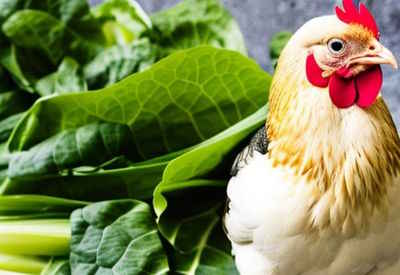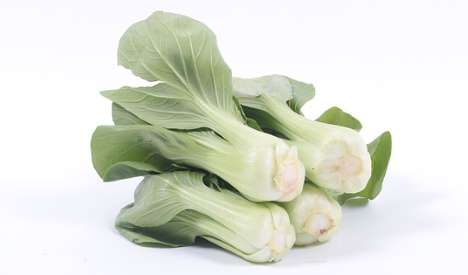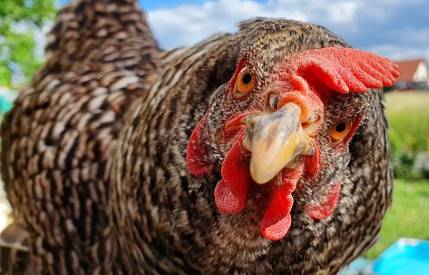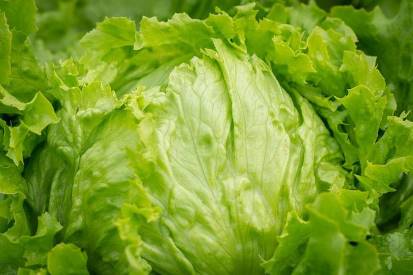Can chickens eat bok choy? Yes! Bok choy is safe for chickens, although it should only be given as an occasional treat rather than a regular part of their diet.
The nutrients in bok choy are beneficial for chickens, including calcium, vitamin K, iron, fiber, magnesium, and potassium. These nutrients help keep chickens healthy and strong so they can continue laying eggs and provide other benefits like improving feather growth or helping with digestion.
Additionally, the high water content helps keep them hydrated during the hot summer months when water may not be readily available from natural sources like ponds or streams. This article will provide you with more information about the benefits that bok choy can offer to chickens, as well as tips for feeding it to your feathered friends.

Can chickens eat bok choy?
Bok choy is an edible species of Chinese cabbage in the mustard family. It’s often used as an ingredient in Asian-inspired dishes, but it can also be eaten raw or lightly cooked. It has a mild flavor and crunchy texture and is packed with essential vitamins and minerals.
Bok choy is high in water content and low in calories, making it a great option for those looking to lose weight or stay hydrated. When feeding bok choy to your flock, moderation is key! Only give them small amounts at a time. This will ensure that your chickens get the nutrition they need without overindulging.
You should also ensure that any bok choy you give them has been washed thoroughly to remove any dirt or bacteria before giving it to them.
[ChickenAffiliate]
The benefits of eating bok choy for chickens
Bok choy is a very popular vegetable among chicken owners, offering numerous benefits to chickens. Let’s take a closer look at why bok choy is such a great food option for chickens and explore five of its key benefits.
Immune System Support
Bok choy contains large amounts of vitamin C, which can help support your chickens’ immune systems and keep them healthy. Vitamin C helps protect cells from damage caused by free radicals, which can be especially beneficial during times of stress or illness.
Bok choy contains other antioxidants, such as beta-carotene and lutein, which can help reduce oxidative stress in chickens and improve their overall health.
Digestive Health
Bok choy contains both dietary fiber and prebiotics, which are important for optimal digestive health. Dietary fiber helps to bulk up the contents of the intestinal tract and provides food for beneficial bacteria in the gut, while prebiotics help stimulate the growth of these beneficial bacteria.
As a result, feeding your chickens bok choy can help keep their digestive system running smoothly and reduce the risk of gastrointestinal issues such as diarrhea or constipation.
Vitamins & Minerals
In addition to vitamin C, bok choy is an excellent source of vitamins A, B6, K1, folate, iron, calcium, magnesium, and potassium – all essential nutrients.
For example, vitamins A and K1 are important for proper vision development in growing chicks, while B6 helps regulate metabolism. Folate aids cell production, iron aids red blood cell formation, and calcium supports strong bones.
Skin & Feather Health
The high levels of omega-3 fatty acids found in bok choy are essential for maintaining healthy skin and feathers. Omega-3 fatty acids play an important role in reducing inflammation throughout the body – a process that helps promote healthy skin and encourages strong feather growth.
Nutrient Absorption
Finally, bok choy contains phytochemicals – plant compounds that have been shown to help improve nutrient absorption from other foods eaten by chickens.
Phytochemicals make certain vitamins more readily available to the body so that they can be used more efficiently by the cells – resulting in improved nutrient absorption.
Things to watch out for when feeding bok choy to chickens

While bok choy has many great benefits, it’s important to remember that too much of a good thing can be bad. It’s important to only feed your chickens small amounts of bok choy at a time and never replace their regular diet with it.
Feed the Right Amount of Bok Choy
The first thing you need to watch out for when feeding bok choy to your chickens is the amount. Too much bok choy can cause digestive problems in your birds, so it’s important to feed only small amounts of this vegetable at a time.
This will ensure that your chickens get all the essential nutrients without any negative side effects.
Check for Pesticides and Herbicides
Another thing you need to watch out for is pesticides and herbicides when feeding bok choy. If you’re buying bok choy from a store, make sure you look for organically grown produce that does not contain chemical additives or preservatives.
If you’re growing the bok choy yourself, ensure no pesticides or herbicides have been used on the plants before feeding them to your chickens. Not only do these chemicals pose health risks for your birds, but they can also end up in their eggs if ingested by the hens.
Take Care With Preparing Bok Choy
Finally, take care when preparing the bok choy before giving it to your birds. Make sure it has been washed thoroughly with clean water to remove any dirt or debris and chop it into small pieces so that it’s easier for them to eat.
You might also want to lightly steam or blanch the bok choy before giving it to your chickens; this will make it easier for them to digest and absorb all those nutrients.
How often should chickens eat bok choy?
For chickens, bok choy can make a great treat now and then. It’s important to remember that bok choy should not be the bulk of their diet. No more than 10% of a chicken’s diet should consist of bok choy or other leafy vegetables.
Bok choy can provide vital vitamins and minerals, but feeding your chickens too much may lead to imbalances in their nutrition, so it’s best only to include this food as an occasional treat.
How to prepare bok choy for feeding to chickens

You should always prepare bok choy correctly before feeding it to your chickens, so let’s look at how to do this properly.
Wash First
Bok choy can often contain dirt and debris, so it’s important to wash it first before feeding it to your chickens. Fill a large bowl or sink with cold water and gently place the bok choy in the water.
Gently swish the leaves until all the dirt has been removed, then set them aside on a clean dish towel to dry off.
Chop Into Small Pieces
Chickens have small mouths and beaks, so they cannot easily eat large pieces of food. You should chop up the bok choy into small pieces before giving it to them – about 1 inch by 1 inch or even smaller if possible. This will make it easier for them to eat and digest.
Cooked or Raw
You can feed bok choy to your chickens cooked or raw – whichever they prefer. If you cook it first, lightly steam the pieces for 5 minutes or until they become soft yet slightly crisp.
Alternatively, feed them raw if you prefer – remember that they must be in small enough pieces that they can easily pick up with their beak and swallow without difficulty.
Remove Uneaten Pieces
Once your chickens have had their fill of bok choy, you should remove any uneaten pieces from their enclosure as soon as possible. Not only because they may attract other animals, such as rats, but also because once these pieces start rotting, they could make your chickens sick if consumed.
Can baby chickens eat bok choy?
When it comes to providing healthy nutrition, baby chicks can certainly benefit from incorporating various greens into their diets – and bok choy is no exception.
Baby chickens should only be given small, shredded pieces of the vegetable as they lack a fully developed digestive tract, and their bodies may not be able to process large amounts. All in all, bok choy is safe for baby chicks but in moderation.
What other leafy greens can chickens eat?

Bok choy is a popular leafy green for chickens, but did you know that there are a wide variety of other leafy greens that your feathered friends can enjoy? Knowing which leafy greens are safe for chickens to eat can help ensure that your chickens have a healthy and balanced diet. Let’s dive into what other leafy greens will make your chickens happy.
Lettuce
Lettuce is an incredibly popular option for chickens. It’s a great way to provide some extra hydration to your flock. Lettuce also provides many essential vitamins and minerals, such as vitamin K and beta carotene, that help keep your chickens healthy.
Just be sure not to feed them too much lettuce, or they might have digestive issues.
Read More: Can Chickens Eat Lettuce? 4 Surprising Benefits
Spinach
Spinach is another excellent option when feeding your chickens leafy greens. Spinach contains large amounts of iron, calcium, and magnesium, all contributing to healthier feathers, bones, muscles, and eggs in chickens.
Spinach also contains more protein than most other leafy greens, so it’s an especially good choice if you want to give your hens an extra energy boost.
Read More: Can Chickens Eat Spinach? 6 Important Benefits
Kale
Kale is one of the most nutrient-dense vegetables around. It contains high levels of Vitamins A & C as well as calcium and iron, which can all help improve the overall health of your flock.
Kale is also highly fibrous, which means it helps with digestion. Just be sure not to overfeed kale, as too much fiber can cause digestive issues in birds.
Read More: Can Chickens Eat Kale? 5 Fantastic Benefits
Arugula
Arugula is definitely on the list of safe veggies for chickens. This peppery green has lots of Vitamin A & K plus essential minerals such as potassium and calcium that will keep your birds healthy and strong.
Arugula has a milder flavor than some other leafy greens, so if you have pickier eaters in your coop, this might be the perfect choice for them.
Read More: Can Chickens Eat Arugula? 5 Amazing Benefits
Collard Greens
Collard greens are another great source of nutrition for chickens. Like kale, collards contain lots of Vitamin A & C plus important minerals like iron and magnesium, essential for keeping feathers shiny and strong eggshells intact.
Collards can be served cooked or raw depending on what kind of texture your birds prefer – either way, they should love this delicious veggie.
Read More: Can Chickens Eat Collard Greens? 5 Excellent Benefits
Can chickens eat bok choy – final thoughts
When fed as an occasional treat rather than a regular part of their diet, bok choy can provide lots of essential vitamins and minerals while helping keep your flock hydrated during hot summer months when natural water sources are unavailable.
However, always ensure that the bok choy you give them has been washed thoroughly before serving, so no dirt or bacteria gets into their systems. Additionally, don’t forget to check that there are no additional uneaten pieces left in the cage after eating.
Related Articles:
